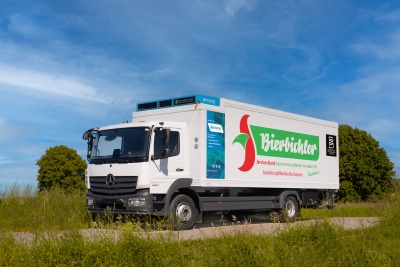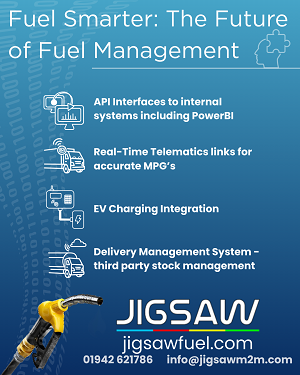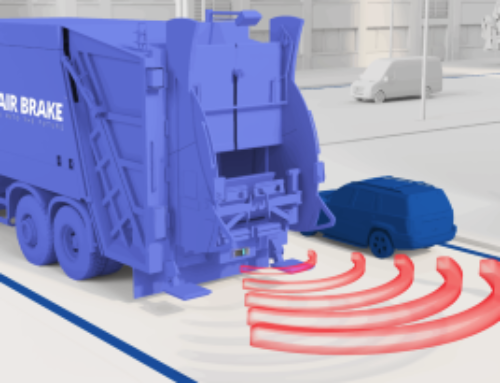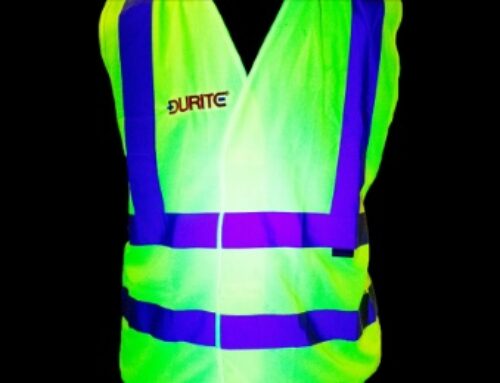Bierbichler cuts environmental impact with Ecooltec
 Food wholesaler Ferdinand Bierbichler is significantly reducing its environmental footprint through deployment of the TM182 transport refrigeration system from Ecooltec, due to the use of natural refrigerants.
Food wholesaler Ferdinand Bierbichler is significantly reducing its environmental footprint through deployment of the TM182 transport refrigeration system from Ecooltec, due to the use of natural refrigerants.
The operator, based in Stephanskirchen in Upper Bavaria, has been running 12 trucks with multi-temp bodies and the Ecooltec TM182 in heavy-duty distribution transport since 2022.
According to Michael Reiserer, managing director of Ferdinand Bierbichler, the 12 trucks equipped with the unit will save almost 780 tonnes of CO2 equivalent over the eight-year service life, compared to its vehicles with conventional, electrically driven transport refrigeration systems.
These savings only include the lower greenhouse gas potential of the natural refrigerants CO2 (R744, GWP 1) and propene (R1270, GWP 3) compared to the F-gas R410A (GWP 2,088), which is used in the systems of other trucks. But Ecooltec also highlights the high energy efficiency of TM182, which is driven purely electrically via its in-house alternator on the truck engine, compared to conventional, also purely electrically driven transport refrigeration units.
“Thanks to its high level of efficiency, the energy consumption of the Ecooltec system is lower than that of systems with synthetic refrigerants, despite its enormous power, due to the efficient refrigeration process using natural refrigerants with a high volumetric cooling capacity and the careful selection and design of the system components,” said Ecooltec.
According to fleet manager Fritz Taucher, this is confirmed by Ferdinand Bierbichler’s consumption records: the trucks with the TM182 require on average up to two litres less diesel per 100 kilometres on the same route and with the same number of door openings than the vehicles with the electrically driven reference system – a consumption advantage of around eight per cent.
With an annual mileage of about 60,000 kilometres, this results in 304 tonnes less CO2 emissions over the eight-year service life and 12 trucks – leading to a total saving of up to 1,075 tonnes CO2e. The lower fuel consumption also results in a lower operating cost reduction of almost €1,900 per vehicle during 2024 alone, which will increase further over the coming years due to CO2 taxation.













